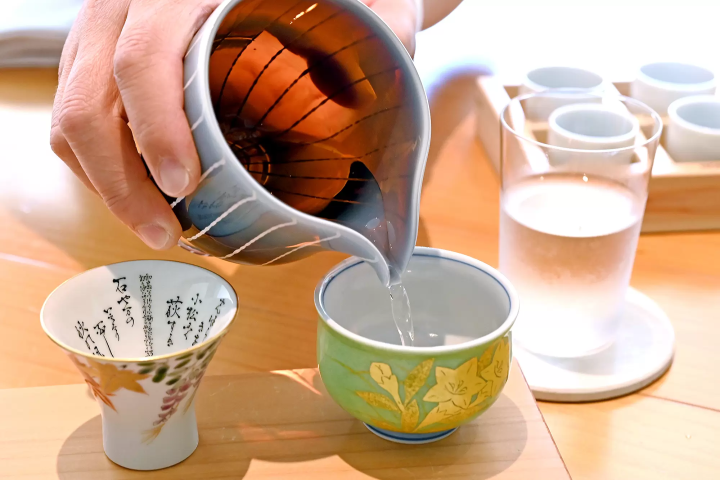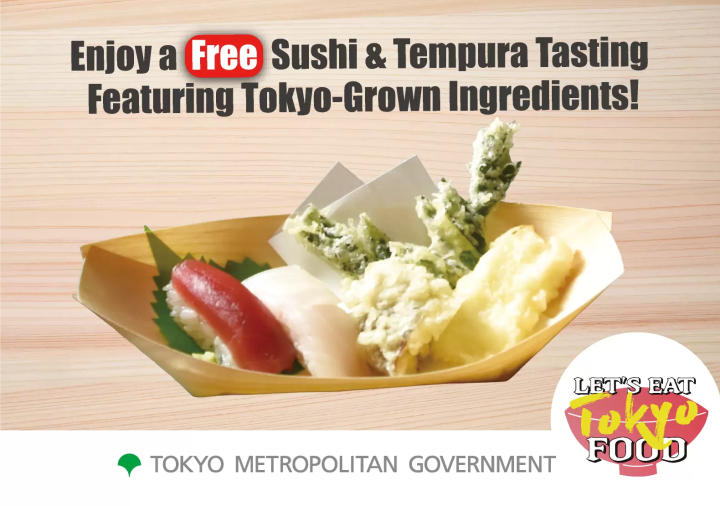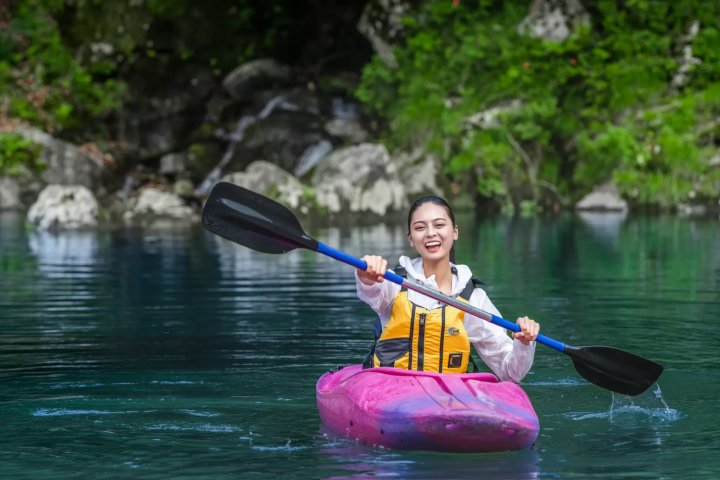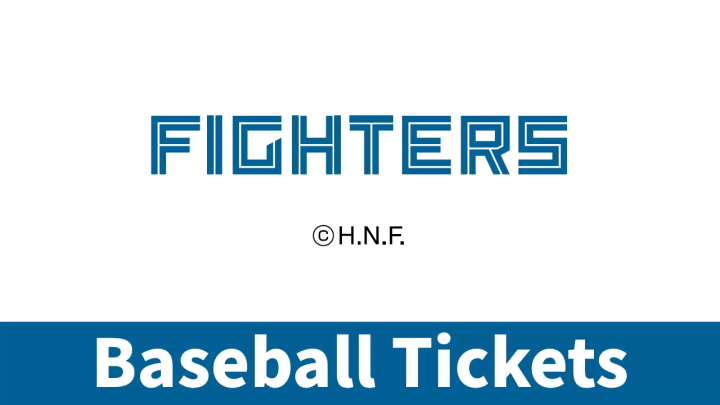13 Convenient Japanese Phrases For Hot Springs!

Visiting a hot spring (onsen) should be a must-do during a trip to Japan! However, many hot spring facilities do not have English support. Use these simple Japanese phrases to communicate while you experience this traditional, relaxing culture!
Relax in the Waters of Hot Springs and Bathhouses
Onsen and sento (public bathhouses) are an indispensable part of Japanese bathing culture. There are around 20,000 onsen facilities across Japan due to its many volcanoes. Rural regions especially boast many hot spring resorts with clusters of onsen and traditional inns. When you visit onsen and sento, remember these phrases and try to use them!
If you want to boost your Japanese language skills through online or in-person lessons, consider applying for a course at Tokyo Central Japanese Language School (TCJ).

Click on the voucher above to find a promo code that allows you to get a discount on learning materials at TCJ! The discounts range between 5,000 yen and 20,000 yen depending on the course you're applying for.
*For help with the pronunciation in brackets, read Japanese Pronunciation and Polite Speech.
At Reception
1. “Hitori ikura desu ka?”
[hitori ikuradeska]
"How much for one person?"
Use this to ask about the entrance fee. Some facilities have different pricing for children and students, so ask the employees.
2. “Basu taoru wa rentaru dekimasu ka?”
[bastaoruwa rentaru dekimaska]
"Can I rent a bath towel?"
“Taoru wa rentaru dekimasu ka?”
[taoruwa rentaru dekimaska]
"Can I rent a towel?"
Use this phrase when you want to rent a towel or bath towel at an onsen or public bath house. Some facilities include towel rental in the price of admission. Make sure to check.
3. “Shanpu (sekken) wa arimasu ka?”
[shanpu:,sekkenwa arimaska]
"Is there shampoo (soap)?"
Use this phrase to ask about the availability of shampoo and soap. While onsen in hotels and major onsen facilities will have these amenities, some public bathhouses do not.
4. “Senganryo wa utteimasu ka?”
[senganryo:wa utteimaska]
"Do you sell face wash?"
Use this phrase to check if the facility sells face wash. Even if there are shampoo and body soap, sometimes there may be no face wash available. We recommend buying some from a nearby convenience store if that turns out to be the case.
5. “Tatu wa daijoubu desu ka?”
[tatwu daijo:budeska]
"Are tattoos allowed?"
If you have tattoos, check if they are allowed you try to enter an onsen. While the number of facilities that accept tattooed guests is increasing, there are still many places where people with tattoos cannot enter. Covering tattoos with special stickers is also acceptable.
Heading Into the Bathing Area
6. “Onna-yu wa doko desu ka?”
[onnayuwa dokodeska]
"Where's the women's bath?”
“Otoko-yu wa doko desu ka?”
[otokoyuwa dokodeska]
“Where’s the men's bath?"
Many onsen and sento use red noren curtains for the women’s side, and blue noren curtains for the men’s side. However, if you are unsure, use this phrase to ask which is which.
7. “Koko wa aitemasu ka?”
[kokowa aiteimaska]
"Is this available?"
Use this phrase to ask if a changing room, locker or shower is available for you to use.
8. ”Tsukattemo daijobu desu ka?”
[tsukattemo daijo:budeska]
"Can I use this?"
Use this phrase to ask if you can use a basket for your clothes, a locker, shower, dryer or other item.
After You Finish Bathing
9. “Kyu-kei su-pe-su wa arimasu ka?”
[kyu:keisupe:suwa arimaska]
"Is there a lounge?"
Use this phrase if you’re looking for the lounge area after you get out of the bathing area.
10. “Shokuji wa dekimasu ka?”
[shokujiwa dekimaska]
"Can I eat in here?"
Some places will not allow you to bring in outside food and drinks or do not eating or drinking at all on the premises. Use this phrase to check whether eating or drinking is allowed in the facility. Some onsen and public bathhouses have restaurants on the premises.
If You’re Feeling Unwell
11. “Gu-ai ga warui desu.”
[guaiga waruides]
"I don't feel well."
Use this phrase if you feel sick after entering the onsen. If you don’t feel well, don’t force yourself to stay in the water. Ask for help from a staff member or the people around you.
12. “Memai ga shimasu.”
[memaiga shimas]
"I feel dizzy."
If you stay in the bath for a long time and stand up suddenly, you may experience dizziness, so use this phrase. Don’t force yourself to stay in the water: make sure to pay attention to how you feel, get out of the water early, and stand up slowly.
13. “Hakike ga shimasu.”
[hakikega shimas]
"I feel nauseous."
Use this phrase if you feel like you might throw up. Some people may react poorly to the odor of sulfur at hot springs. Say this to get help from the people around you.
Review
Do you remember what these phrases mean?
"Hitori ikura desu ka?"
[hitori ikuradeska]
2. "Basu taoru (taoru) wa rentaru dekimasu ka?"
[basutaoru/taoruwa rentarudekimaska]
3. "Shanpu (sekken) wa arimasu ka?"
[shanpu/sekkenwa arimaska]
4. "Senganryo wa utteimasu ka?"
[senganryo:wa utteimaska]
5. "Tatu wa daijoubu desu ka?"
[tatwu daijo:budeska]
6. "Onna-yu (otoko-yu) wa doko desu ka?"
[onnayu/otokoyuwa dokodeska]
7. "Koko wa aitemasu ka?"
[kokowa aiteimaska]
8. "Tsukattemo daijoubu desu ka?"
[tsukattemo daijo:budeska]
9. "Kyukei su-pe-su wa arimasu ka?"
[kyu:keisupe:suwa arimaska]
10. "Shokuji wa dekimasu ka?"
[shokujiwa dekimaska]
11. "Gu-ai ga warui desu."
[guaiga waruides]
12. "Memai ga shimasu."
[memaiga shimas]
13. "Hakike ga shimasu."
[hakikega shimas]
How did you do? Try using these phrases when visiting onsen and sento!
For those already studying, we recommend taking online conversation lessons with CafeTalk (1,000 yen coupon included).
Read also
MATCHA編集・ライターのインターン生。カフェ・レストラン巡りと映画鑑賞が大好きな大学生。










































![[Shinjuku Nishiguchi HALC] About the d Point Campaign](https://resources.matcha-jp.com/resize/720x2000/2026/02/14-258714.webp)



